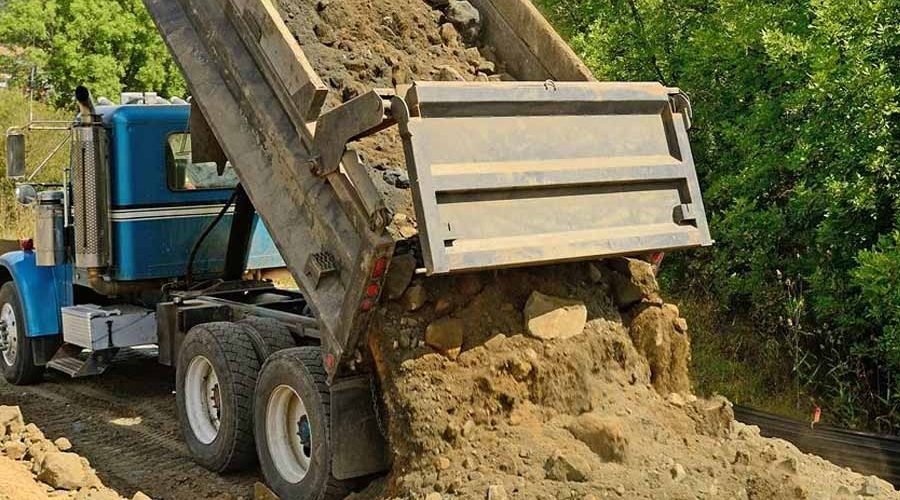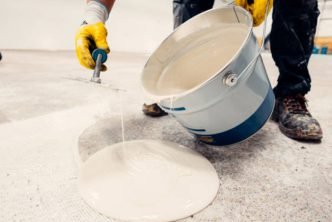There was a time when tippers and trailers were the height of innovation, being used across many important industries such as construction, agriculture, retail and more.
However, as demand for goods and waste management has continued to grow and these industries have faced increasing pressure, swaying tippers and manual trailers are not always fit for purpose anymore.
The good news is, innovation in haulage vehicles over the last decade has made it possible for these sectors to adapt and meet the ever-growing demands placed on these businesses.
One such innovation is the ejector trailer, but what makes this such an ideal solution, and what are these vehicles most commonly used for?
Read on to find out.
Table of Contents
What is an ejector trailer?
An ejector trailer is used in place of traditional tippers or trailers to make loading and unloading huge amounts of goods or materials much easier. The trailer uses a series of rams or moving floor panels to make unloading bulk materials possible without the need for too much human intervention.
Benefits of an ejector trailer
There are lots of reasons why businesses have chosen to move to ejector trailers over traditional ones. This is largely because these vehicles have a number of key benefits that make them better suited to the job, including:
- Offering safer unloading, particularly in tighter spaces like areas with power lines or low-hanging trees
- Needing less manual intervention, reducing the risk of accident or injury
- Being quicker and easier to use
- As they do not tip or need to be emptied manually, they can still be used safely on even terrain
- Typically carry larger, heavier loads, increasing the efficiency of each trip
- Reducing operational costs as fewer trips and less manual labour is required
- Being tightly sealed, making it possible to carry smaller or more fluid materials such as slurry or grain
And this is just a very broad overview of what makes these vehicles so much more efficient and user-friendly for businesses. Depending on the nature of the work and the industry you operate in, it is likely that other benefits will become apparent over time.
Common uses for these trailers
Because these trailers can be so beneficial, lots of businesses in the agricultural, construction and waste management sectors have started to rent or invest in these for their daily operations. We’re now going to look at seven of the most common and important uses for these vehicles.
In waste management
As we’ve said, ejector trailers can carry huge and heavy loads, making them ideal for the waste management sector. Particularly as the amount of waste we produce each year (sadly) continues to grow. Some of the most important applications include:
General waste
These trailers can transport a huge amount of general waste, which, unfortunately, in many cases, will need to go straight to a landfill. As these vehicles can travel across rocky ground and don’t need someone to manually remove all the waste, these have now been adopted by many waste management companies for general waste.
Recycling
On a more positive note, they can also be used to transport large amounts of mixed recyclables to plants, where they can be sorted, treated and processed accordingly.
Food waste
Finally, food waste collection has increased in recent years and is being used to make compost, fertiliser, or to generate energy. As these trailers can carry massive amounts of waste at one time, they cut down on the number of trips needed to collect and transport food waste in order for it to be processed.
For agriculture and farming
Another important use of ejector trailers is in the agricultural industry. With vast amounts of products or materials to shift, farmers and contractors need all the help they can get, which is where these vehicles come in.
They are used primarily to haul huge quantities of materials to the field. For this reason, these trailers are particularly important for both pastoral and arable farming or a mixture of both.
Pastoral
They can transport large amounts of maise and silage when required to be laid down as animal feed, in most cases for dairy cattle. They can also take away any waste materials as and when needed.
Arable
They can also carry manure which is used by many farmers for fertilising their crops and is a more sustainable operation. These vehicles make it far easier to move and offload these goods in the chosen location, even despite the fields often being rough terrain.
For aggregate and construction
Last but not least, there are multiple ways that ejector trailers are aiding the construction industry. This is no surprise, given that this sector relies on heavy materials. And for bigger projects, often in vast quantities too.
Cutting down on the number of trips that need to be made to transport materials or get rid of waste products helps to save money and cut the overall cost of a project.
These vehicles are favoured in several ways.
In demolition and aggregate
Firstly, these trailers lend themselves nicely to the demolition and aggregate sector because they make it possible to move large amounts of waste materials like rubble after something has been demolished. Plus, they can go over rocky ground, which makes it much safer to handle and transport these goods.
These can either be taken away for disposal elsewhere or moved to another site to be used as aggregate for another part of the project, such as providing drainage, filling voids or protecting pipes.
For transporting construction materials
Most construction projects will require multiple materials to get the job done, for example, gravel, sand, earth or crushed stone. And not only can ejector trailers carry large quantities of this to more remote or uneven building sites, but they are also beneficial for protecting these materials from the elements.
This means they are ideal for the construction industry as both wet and dry loads can be piled into the trailer, and closed-top ejectors will keep wind and rain off those materials that need to be kept dry or protected.





